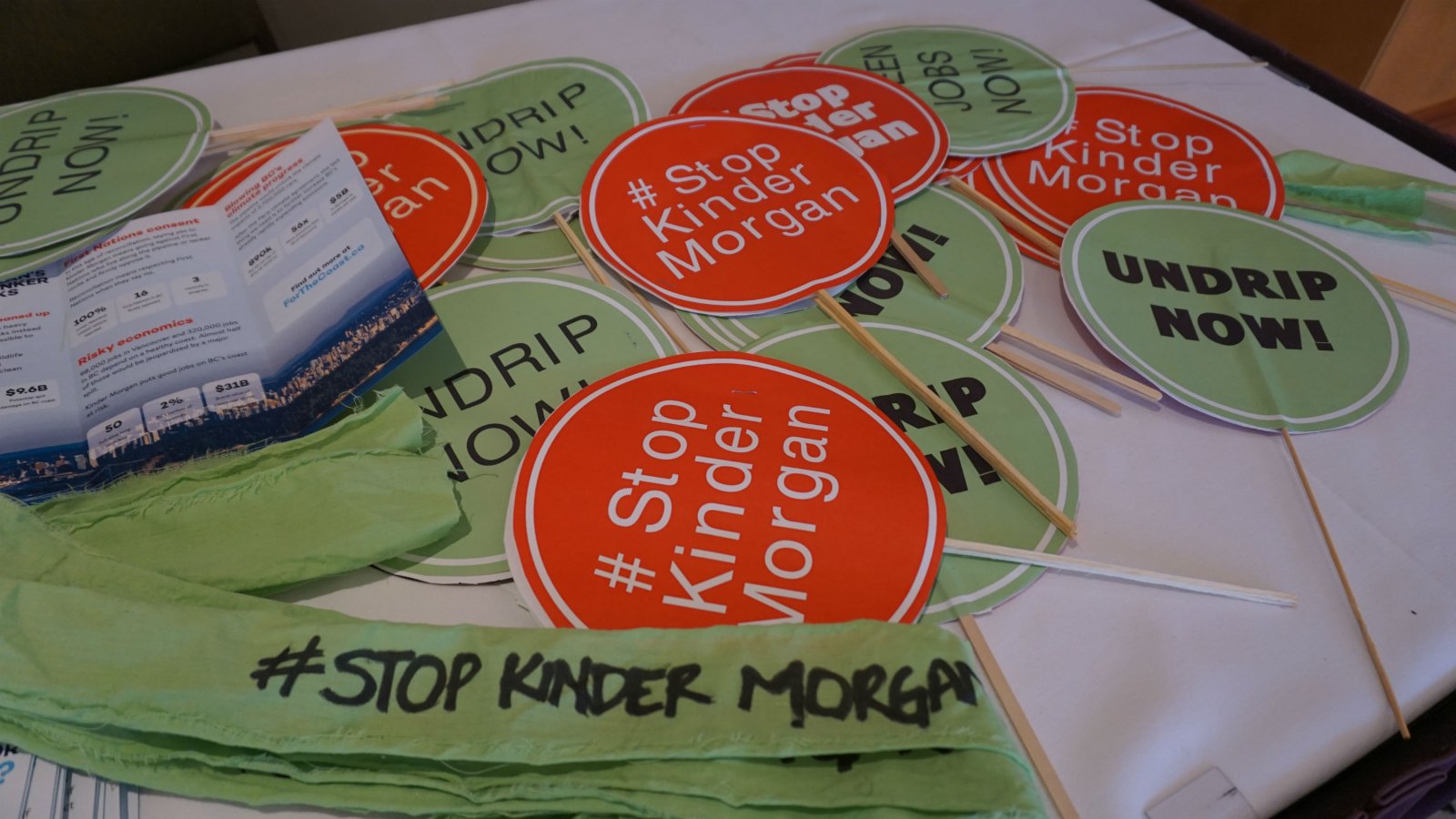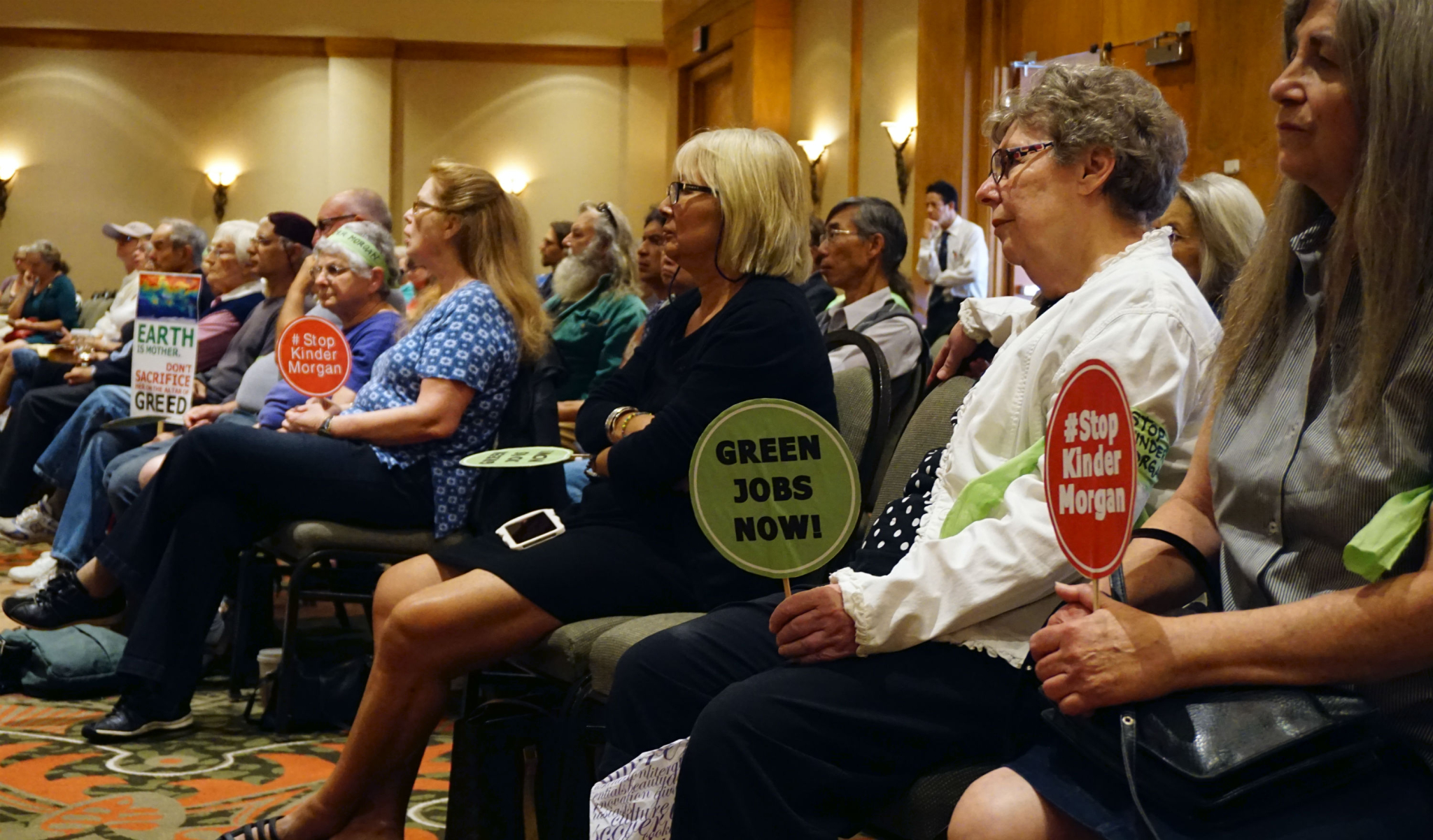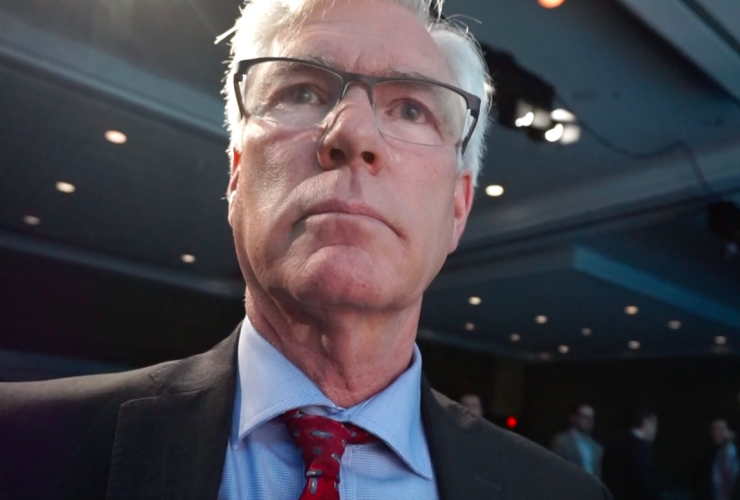Elementary school teacher Janet Pritchard's voice quavered as she described her experience during a devastating oil spill from Kinder Morgan's Trans Mountain pipeline in Burnaby, B.C..
It was July 24, 2007 when a backhoe ruptured the decades-old pipeline carrying crude from the oilsands to a nearby marine terminal. Black sludge flew 40 feet in the air for at least 25 minutes, while Kinder Morgan, a Texas-based oil giant, mobilized a spill response. The oil covered homes, trees, wildlife and cars, forcing the evacuation of more than 220 Burnaby residents. It dumped nearly 78,000 litres of oil into Vancouver's Burrard Inlet, poisoning 15,000 metres of shoreline.
Dozens of Pritchard's students were forced from their homes for months, creating what she referred to as "oil refugees." Her school did its best to accommodate their needs but it left a lasting impact on the children.
"Suddenly the pipeline became a really personal issue," she told a three-member panel appointed by the federal government to hear local concerns in Burnaby on Wednesday. "Forgive me if I’m skeptical that this company is going to have future issues building and protecting their infrastructure."

Extreme fear of another spill
Today — four years after it was ordered to pay $150,000 in fines for that oil spill — Kinder Morgan wants to triple the capacity of that same Trans Mountain system by adding 980 kilometres of brand new pipeline. If the addition is approved by the federal government later this year, it will transport 890,000 barrels of crude oil and refined petroleum per day to refineries and terminals near Vancouver and Washington.
"I have a number of fears," said Burnaby resident Linda Forsythe, "the fear of leaks in the pipeline. I have no trust that Kinder Morgan will respond to those leaks. I have fear of fire at the tanks in a once sparsely populated area, now home to thousands. My grandchildren’s school is metres away from the existing pipeline.”
The City of Burnaby, where the pipeline will end, is considered a kind of 'ground zero' by project opponents. Pritchard in particular called it "an environmental disaster waiting to happen," Forysthe called it "insane," and other presenters before the three-member panel used more extreme language like "idiotic," and "an absolute joke."
More than 160 Trans Mountain opponents attended the town hall, sporting bright green arm bands that read, "Stop Kinder Morgan" and waving signs calling for the federal government to respect the UN Declaration on the Rights of Indigenous Peoples. The pipeline expansion is officially opposed by a several B.C. municipalities and at least 17 individual First Nations whose unceded territory it would cross.
Not a single presenter piped up in favour of the project, and nearly all expressed some form of distrust in the federal government's panel, concerned that it would not properly relay their concerns to Natural Resources Canada in the fall. The Trans Mountain expansion has already been recommended for approval by the National Energy Board, but distrust in that review process sparked a federal government promise to conduct additional consultation.
Roughly 15,000 people have already contacted the new panel through an online survey, and the panel has already conducted additional consultation meetings in Calgary, Jasper, and Edmonton as well as Kamloops, Chilliwack, Abbotsford, and Langley, B.C. The panelists will report their findings to the federal government in September.





Comments